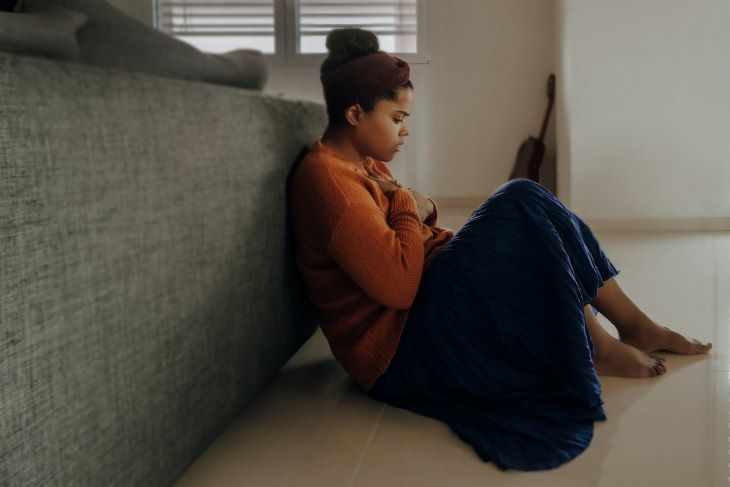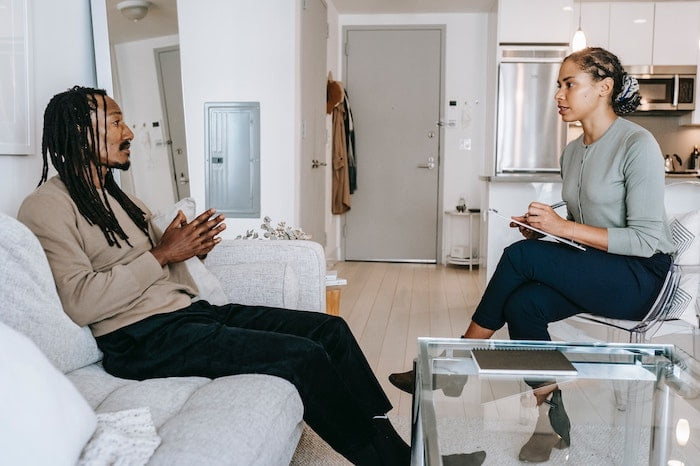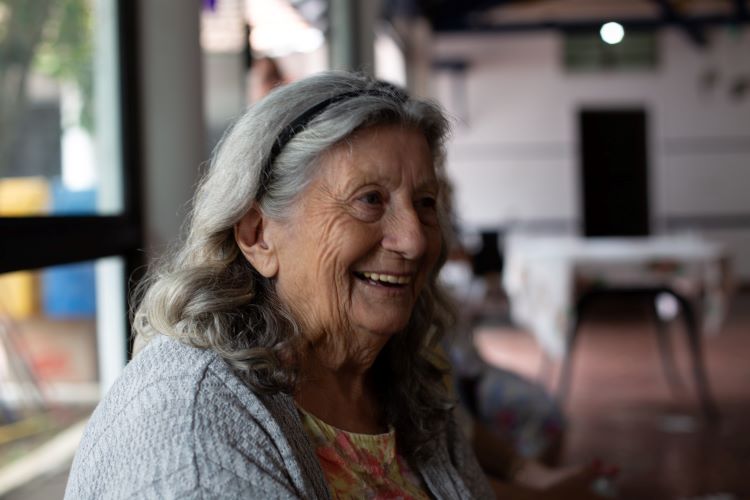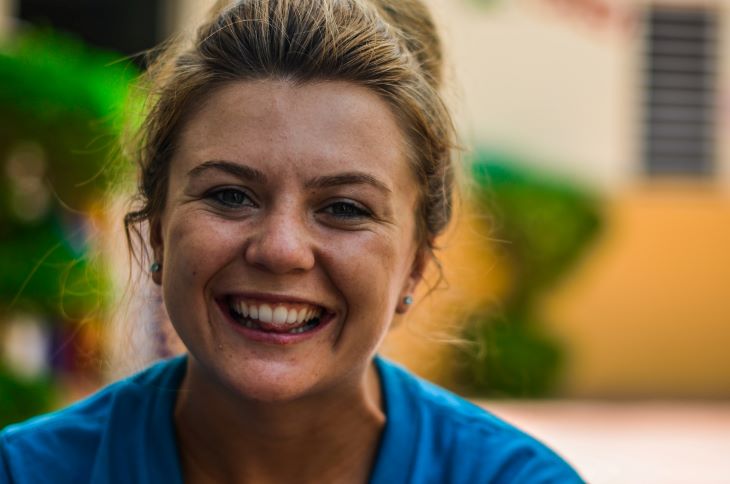Drug & Alcohol Rehab in Bentley
It is essential that individuals who have developed problems with substance abuse seek medical help and get appropriate rehab treatment. This, however, is not an easy thing to do.
For many, getting help for an addiction is incredibly daunting. Knowing where to start looking for treatment, what kind of programme to aim for, and whether rehab is even necessary can all be obstacles that push people away.
At OK Rehab, we understand that this is a huge problem. Anything that pushes people away from getting the help that they need needs to be addressed, and we hope to do just that.
Identifying an addiction

A large reason why many individuals do not seek out the help that they need is because they do not understand that they have a problem.
What makes addictions so threatening is that those who suffer from them cannot always see the danger of their behaviour, and so do not take well to the idea of getting treatment.
In many cases, this lack of awareness stems from a sense of denial in which an individual unconsciously rejects that they have a problem with substance abuse in order to protect themselves from the negative implications [1].
Denial is a huge problem, and it is therefore important to make clear what the signs of addiction are so that individuals or the people closest to them can objectively identify whether there is a problem and if rehab is needed.
At OK Rehab, we offer free advice from a team of non-judgemental professionals, many of whom are in recovery and understand how hard it can be to change your relationship with addiction.
To find out more about rehab in Bentley, simply reach out to our 24/7, confidential hotline on 0800 326 5559.

The signs of addiction to look out for are:
- Consuming a substance frequently or in excessive quantities
- Consuming more and more of a substance as time goes on
- Becoming obsessive about a substance
- Consuming a substance in inappropriate settings – such as before or during work
- Taking risks or being secretive in order to attain more of a substance
- Losing interest in other hobbies, events, or people
- Experiencing withdrawal symptoms – such as headache, nausea, or shaking – when a substance is not consumed
If any of the traits listed above are present in your behaviour (or that of a friend or loved-one) it is important to seek help.
The signs of addiction can be difficult to spot, but identifying a problem as early as possible can make treatment and recovery faster and safer.
Rehab in Bentley can help you or your loved one to see that recovery is possible, and help you towards a successful life of sobriety.
How is addiction treated?

Once you have made the decision to begin treatment, it is essential that you then understand what to expect from the addiction recovery process.
Taking the time and putting in the effort to get sober is a tall order, so it is best to know what the process involves and what will be expected of you.
While every rehab programme will offer a different approach and emphasis when it comes to the recovery process, there are certain treatment methods which are fundamental to the rehab process and are therefore present in almost all available programmes.
These are detoxification and therapy.
At OK Rehab, we offer free advice from a team of non-judgemental professionals, many of whom are in recovery and understand how hard it can be to change your relationship with addiction.
To find out more about rehab in Bentley, simply reach out to our 24/7, confidential hotline on 0800 326 5559.
1. Detoxification

Upon entering addiction rehab, the first method of treatment which individuals go through is detoxification. This looks to help individuals overcome their physical dependency upon a substance.
As an addiction develops, the frequent consumption of a substance begins to alter an individual’s body chemistry.
Heavy materials such as drugs and alcohol have such strong effects that the body begins to rely on them to function as they become a regular part of an individual’s routine.
This reliance forces the body the react adversely to the substance’s absence, and so rehab’s first objective is to help reduce this dependency and ease an individual into sobriety without withdrawal posing too much of a threat to their health.
Detoxification, therefore, looks to taper off substance use, gradually reducing the quantity an individual consumes, until they can eventually withstand being completely sober.
Withdrawal can also be monitored through this process using medicinal support.
2. Therapy

Once a good deal of progress has been made on the physical side of addiction, rehab then looks to help an individual tackle the psychological level of the condition through a range of therapy activities.
In many cases of addiction, the condition develops as a result of an individual trying to cope with another mental health condition.
Whether it is depression, anxiety, trauma, or a different condition, substance abuse often stems from self-medication getting out of control.
At OK Rehab, we offer free advice from a team of non-judgemental professionals, many of whom are in recovery and understand how hard it can be to change your relationship with addiction.
To find out more about rehab in Bentley, simply reach out to our 24/7, confidential hotline on 0800 326 5559.

Drugs and alcohol have relaxing effects in the first instance, meaning that they can calm an individual’s thoughts and feelings, and make them feel better if they are struggling in life.
As a result, individuals can become reliant upon such substances, viewing them as necessary in order to cope.
Addiction therapy, therefore, is an important part of recovery as it is designed to help individuals break this unhealthy perception of substance abuse and develop healthier ways of handling their underlying issues [2].
A variety of therapy activities can be employed at rehab in Bentley to achieve this effect, including:
What usually happens after rehab in Bentley?

Following sustained and effective detoxification and therapy treatment, an individual will prepare for leaving rehab and returning to their everyday life.
This is an incredible achievement for the recovering individual, but it does not mean that the danger has passed.
Relapse is very common during the first few weeks and months of leaving treatment, so many rehab programmes offer aftercare services which are designed to help individual cope with the pressures of their family and work life, and retain the progress they have made.
Aftercare can include therapy sessions, support group meetings, or skills workshops – all of which work to help individuals to continue making positive progress.
At OK Rehab, we offer free advice from a team of non-judgemental professionals, many of whom are in recovery and understand how hard it can be to change your relationship with addiction.
To find out more about rehab in Bentley, simply reach out to our 24/7, confidential hotline on 0800 326 5559.
Different kinds of rehab programmes

While the fundamentals of addiction recovery treatment are almost universal, there are important decisions to be made in order to ensure that you get onto a rehab programme that will work for your specific situation and circumstances.
Every person who struggles with addiction will experience the condition in their own way, suffering from a unique combination of symptoms and consequences.
Some will have lighter, more manageable symptoms in the short-term, while others can be unable to look after themselves.
Choosing between outpatient and residential rehab in Bentley

As a result of the above, it is important that individuals understand the importance of choosing between outpatient and residential rehab.
While both of these programme types offer beneficial treatment, they each work better for individuals in specific circumstances, and therefore need to be properly assessed before being chosen.
Outpatient rehab allows individual to return home between treatment sessions and, as a result of this flexibility, offers guidance and limited medical support only.
On the other hand, residential rehab offers individuals accommodation throughout their treatment, as well as much more thorough, time-consuming treatment.
Outpatient programmes work better for those who have relatively new and manageable conditions, whereas residential is reserved for those who experience such dangerous and persistent symptoms that they cannot look after themselves.
Selecting the right kind of treatment is essential for ensuring that rehab is as effective as possible, and the right amount of research should be conducted before any decisions are made.
At OK Rehab, we offer free advice from a team of non-judgemental professionals, many of whom are in recovery and understand how hard it can be to change your relationship with addiction.
To find out more about rehab in Bentley, simply reach out to our 24/7, confidential hotline on 0800 326 5559.
How do you get help?

The importance of getting the right rehab programme described above can make you feel a bit overwhelmed as to how you can conduct the right kind of research and where you are to begin searching.
At OK Rehab, we can help you begin the rehab process by discussing your situation and offering advice as to what treatment you might benefit from and where you should begin looking for it.
Finding the right kind of help can be daunting, but when you contact us, we can help you feel more confident by offering you quality and personalised guidance and support at rehab in Bentley.
Getting support from OK Rehab

If you are considering drug and alcohol rehab and need support, get in touch with us at OK Rehab. We can help!
It can be frightening to think about addiction treatment, and trying to find rehab in the Bentley area can feel overwhelming.
But when you contact us, we can help find the right programme for your situation and make sure that you feel confident about taking the next steps towards a healthier lifestyle.
At OK Rehab, we offer free advice from a team of non-judgemental professionals, many of whom are in recovery and understand how hard it can be to change your relationship with addiction.
To find out more about rehab in Bentley, simply reach out to our 24/7, confidential hotline on 0800 326 5559.

[1] https://research.birmingham.ac.uk/portal/files/25519189/DENIAL_PICKARD_M_L_FINAL_PRE_PROOF.pdf





